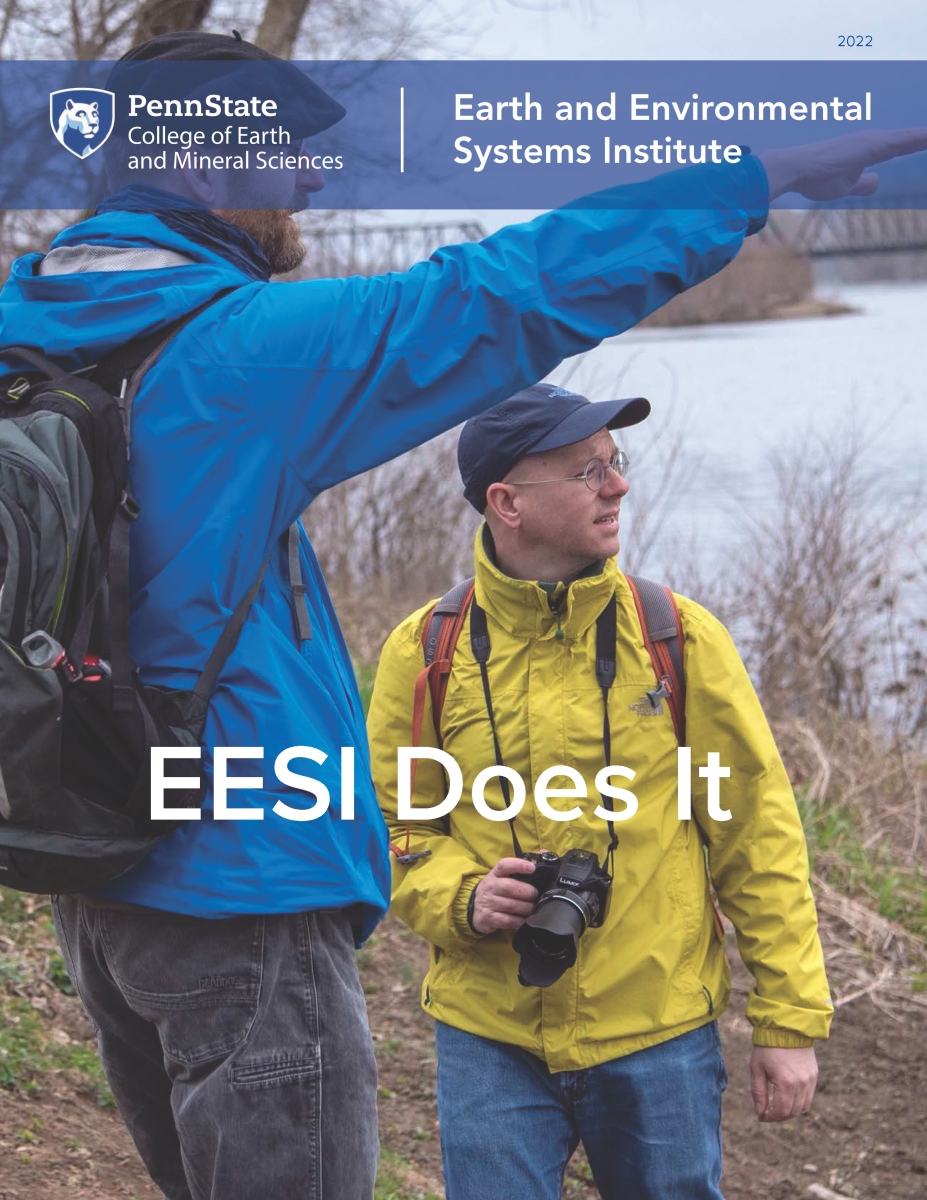 Jaclyn Stimely
Jaclyn Stimely
September 2016
Jaclyn Stimely quickly learned that the space grant program isn't just about astronomy and physics.
"Our programming really is cross-disciplinary," said Stimely, who has been the administrative manager for the NASA Pennsylvania Space Grant Consortium (PSGC), housed within Penn State's Earth and Environmental Systems Institute, since December. The PSGC is one of 52 across the country.
Space Grant programming is aimed at helping future scientists and engineers pursue their passions. Stimely knows that can be a truly interdisciplinary endeavor.
"We supported an early career biologist at St. Francis University who didn't have funding to continue her research through the summer," Stimely said. "She studied micro-organisms and the investigation of life in extreme environments."
Perhaps that project stuck out for another reason. In college, Stimely studied biology at Arcadia University outside Philadelphia. When she relocated to the area, Stimely joined the Chemistry Department at Penn State, managing the graduate program. She accepted a job with the Space Grant program in December 2015.
"It's a rewarding position," she said. "I get to work with different institutional programs across the state from the proposal stage to budget adjustments to program evaluation."
PSGC provides opportunities for undergraduate and graduate students at 15 universities across the state, including Penn State. The Space Grant programs include scholarships, fellowships and hands-on lab experiences. The work crosses colleges, drawing participants in Agricultural Sciences, Earth and Mineral Sciences, Eberly College of Science, Education, Engineering, Liberal Arts, Information Sciences and Technology, and Health and Human Development.
Among those programs is the Women in Science and Engineering (WISER) and the Minority Undergraduate Research Experience (MURE). These programs provide opportunities to women and minorities, matching them with professors in STEM research. The current cohort includes 50 participating faculty, 31 WISER students and 11 MURE students.
"We aim to get students involved in research early in their academic careers in hopes that they will pursue a future in STEM fields." Stimely said. "We are trying to foster those kinds of connections."


